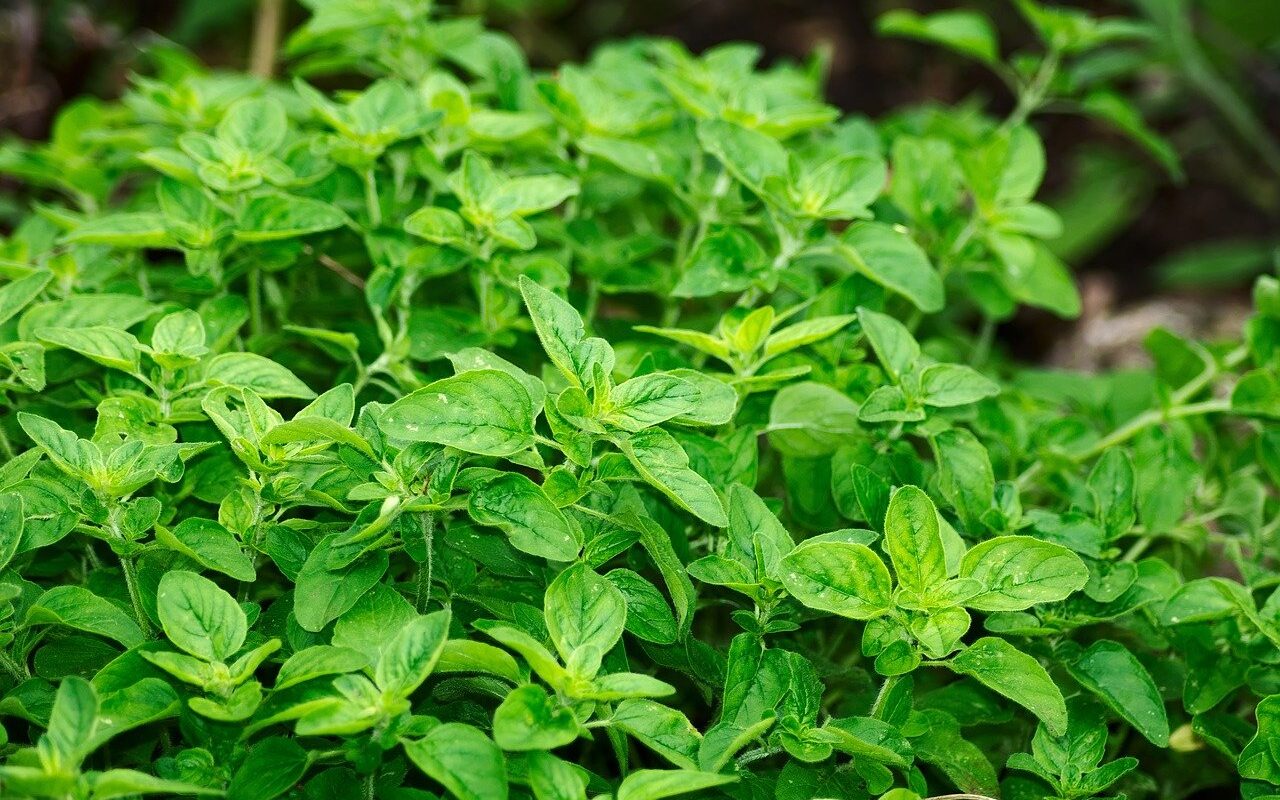Nature’s goodness and nutrient-rich herbs are available all year round, and they help us get rid of all the nasty ailments and infections that plague our body without causing any adverse effects.
Cold, flu, chest congestion and sore throat are a very common occurrence in the winters. However, over the counter drugs tend to do some serious damage to our health, hence, we need to discard them and adopt a much more natural and herbal therapy.
Listed below are 30 herbs that can help you decongest, eliminate a cold, break a fever, and improve your health instantly!
1. Cowslip (Primula veris)
Primula veris, which is popular as cowslip, is a popular herb known for its relaxing and soothing properties. It is rich in triterpenoid saponins, which are potent expectorants, and it aids in clearing up chest congestion and loosening phlegm. These lovely yellow flowers can be used to make a hot cup of relaxing tea, just boil a cup of water and toss in 1 ounce of cowslip root. Let the mixture simmer for 20 minutes on low heat before you strain it and drink it hot. However, if you are taking aspirin or anticoagulant drugs, for instance warfarin, avoid cowslip. Pregnant women should also avoid using this herb.
2. Elderberry (Sambucus canadensis)
Elderbbery, or Sambucus Canadensis as it is known by its scientific compound, has earned the title of “The medicine chest of the people” because of its countless health benefits. Research reveals that elderberry extracts and syrup can help reduce the intensity of the flu along with its duration. A hot cup of elderberry tea is all you need to get rid of that awful runny nose.
3. Ginger (Zingiber officinale)
Zingiber officinale, or ginger as well all know it, is a natural diaphoretic, which is basically a compound that causes you to sweat. Therefore, making it a great remedy to eliminate the symptoms of flu or cold, or even breaking a fever. A hot, steaming cup of ginger tea is all you need for a bad cold, just boil a cup of water, and toss in 1 tsp. of ginger powder. Let the mixture steep for about 10 minutes, before you strain it and pour it out in a cup. Add half a tsp. of honey if you want to sweeten the taste a little bit. If you have a sour throat, you can use this hot mixture for gargling. You can also use it as a spice, it adds a delicious tinge to any recipe. However, if you have gallstones or you’re pregnant, ginger is not advised for medicinal purposes.
4. Thyme
Thymus vulgaris is the easiest fix for those of you who simply don’t have the time to nurse a bad cold or a sour throat. Thyme is packed with infection-fighting antioxidants and it can relieve your pain instantly. A hot cup of thyme tea will put an end to those nasty coughs, as it soothes the pain of bronchial spasms, along with clear out the mucus and congestion of a cold. You can also use it in your cooking, but if you’re pregnant or breast-feeding, do not take thyme for medicinal purposes.
5. Valerian
Valeriana officinalis, or Valerian is a remarkable remedy to put yourself sound asleep even with a runny nose and awful cold. Just fix yourself a hot cup of valerian root tea, and you’ll be snoring peacefully before you know it. Since the Ancient Roman era, valerian tea has been hailed as a popular mild sedative. And the best part is, it has no side-effects and it is not the least bit addictive. All you need to do is boil 1 cup of water, add 1 tsp. of dried valerian root, and let it steep for 10 minutes. However, this herb is not suitable for pregnant women.
6. Red Clover
Trifolium pretense is the fancy name for the lovely pink flowers called Red Clover that are found everywhere in North America. These pretty buds are edible weeds, along with being great expectorants. For centuries, the red clover has been used as a popular treatment for chest congestion, coughs and bronchitis. A red clover tea is just what you need to soothe those nasty coughs, so boil a cup of water with dried flowers, and drink it while it’s hot for best results.
7. Black pepper (Piper nigrum)
Piper nigrum, or black pepper as well all call it, is the easiest trick because we all have this herb in our kitchen cabinet. In China, Hu Jiao, which is basically black pepper in mandarin, is the most popular herbal treatment for phlegm that results from a cold. So, feel free to add lots of black pepper to your eggs, soups and chicken broth for an effective cure.
8. Rosemary (Rosmarinus officinalis)
Rosemary, or Rosmarinus officinalis as it is called by herbalists, is an essential oil with great healing powers. It smells fabulously good, and if you combine its aroma with steam, it works wonders to eliminate chest and nasal congestion. And eating rosemary is also extremely beneficial.
9. Astragalus (Astragalus membranaceus)
Astragalus membranaceus, or just plain old astragalus like we call it, contains certain compounds that fortify your immune system, increase the growth of T cells in your body, increase the production of white blood cells that fight infection, and increase the formation of antibodies. The yellow root of an astragalus strengthens your immunity to fight off the cold, and break the fever naturally. The root can be sliced up and added to several dishes, but it is ideal to add it in a hot soup or broth. However, be sure to take the root out when you’re serving the dish. Also, if you’re pregnant or breast feeding, avoid astragalus.
10. Licorice root (Glycyrrhiza glabra)
Glycyrrhiza glabra, more popularly known as licorice root is a natural demulcent and expectorant, and it is by far the best remedy to eliminate a cough. It soothes the mucus membranes, and that brings relief from cough and sour throat. You 1 tsp. dried and sliced licorice root and 1 cup of water to prepare a nice cup of licorice tea. Let the mixture steep for 10 minutes before you pour it out, and enjoy at least 3 cups a day over the course of a week. However, if you have hypertension, heart disease, liver infection or pregnancy, avoid licorice.
11. Garlic (Allium sativum)
Allium sativum, or garlic has been hailed for its herbal benefits for over 5,000 years, and it has an incredibly powerful antifungal, antiviral and anti-inflammatory profile. Garlic tea, along with garlic supplements work well to prevent and provide relief from a cold.
12. Yarrow (Achillea millefolium)
Achillea millefolium, which is commonly referred to as yarrow, has a very strong antispasmodic profile, along with being rich in flavonoids, and a powerful anti-inflammatory agent. It soothes down the itchiness of a sour throat and eliminates cough. Yarrow tea is a popular English remedy to ward off flu and colds. However, if you have allergies to aster plants, such as ragweed or yarrow, be sure to consult your doctor. And avoid yarrow if you are pregnant.
13. Marjoram (Origanum majorana)
Origanum majorana, more popularly known as marjoram is a plant that eases breathing, and when you inhale it with steam, it’s unblocks sinuses and eliminates laryngitis. You can even enjoy a luxurious hot bath with a few drops marjoram essential oil, it will eliminate stress and anxiety, along with soothing away the flu and cold.
14. Roman Chamomile (Chamaemelum nobile)
Chamaemelum nobile, or Roman Chamomile as we know it, is the best relaxing herb that is a remarkable remedy for insomnia. If an awful cold isn’t letting you get a good night’s sleep, a hot cup of chamomile tea is all you need. However, if you are allergic to aster plants, like ragweed and chamomile, you should discuss with your doctor before trying this remedy.
15. Sage (Salvia officinalis)
Salvia officinalis, or sage is one of the oldest traditional remedies for coughs and sore throat. In Germany, sage is recognized as the best herbal treatment for abnormal sweating. You can make yourself a hot cup of sage tea, you need 1 cup water and 2 tsp. of fresh sage leaves, you can even use dried sage. Let the mixture steep for at least 10 minutes before you strain it out and drink it hot. For a sore throat, use hot sage water for gargling. However, if you are pregnant or breast-feeding, stay away from sage.
16. Cinnamon (Cinnamomum verum)
Cinnamomum verum is the best herb to stay warm in winters, it eases the symptoms of a cold and warms you up. For centuries, it has been used for body warming, and it eliminates flus and colds by clearing up the mucous congestion. It also aids and heals the digestive system. However, if you are pregnant, it is not advisable to take cinnamon for medicinal purposes.
17. Spearmint (Mentha spicata)
Mentha spicata, or spearmint as well all are familiar with it is probably the gentlest and easiest cure for a cold. It is highly effective when used in aromatherapy, and can treat a range of respiratory ailments such as bronchitis, colds, coughs along with fatigue and stress.
18. Basil (Ocimum basilicum)
Basil or Ocimum basilicum is the best summertime cure for colds, and the best part is, you can store it all year around. It can reduce the intensity of respiratory diseases such as cold, flu and cough, along with easing the symptoms of fever. The best wintertime trick is to chop up fresh basil, put it in an ice tray filled with water, and let it freeze. You can pop a few ice cubs to make basil iced tea or add it to a smoothie.
19. Hyssop (Hyssopus officinalis)
Hyssopus officinalis or hyssop is used to ease respiratory ailments such as cold, bronchitis and flu. Hyssop tastes really nice, a lot like mint and sage, so feel free to add it to your meat recipes, sandwiches and soups. It is also an excellent antibacterial ingredient to be used in cleaning products. However, if you’re pregnant, avoid taking hyssop.
20. Mullein (Verbascum thapsus)
Verbascum Thapsus, or Mullein is a traditional herbal remedy for respiratory ailments and ear infections. Mullein leaf tea is a great cure for coughs, colds and flu along with sore throat. Just boil a cup of water and toss in 2 tsp. fresh mullein leaves. Let the mixture steep for at least 10 minutes before you strain it out and drink it hot. It is highly advisable to strain it using a coffee filter to make sure none of the plant hairs end up in your mouth.
21. Eucalyptus (Eucalyptus globulus)
Eucalyptus globulus is an effective ingredient found in all vapor and chest rubs, so instead of using it with other chemicals and preservatives, why not administer it directly and enjoy best results? Just add a couple drops of eucalyptus essential oil in steaming hot water, and inhale the steam to ease the symptoms of bronchitis and sinuses.
22. Catnip (Nepeta cataria)
Nepeta cataria, or catnip as well all are familiar with it is a powerful herb that arouses sweating, and it a great remedy for breaking a severe fever. You can make yourself a steaming cup of hot catnip tea or you can chop it up and garnish over your salad. Pregnant women should avoid catnip.
23. Lemongrass (Cymbopogon citratus)
Cymbopogon citratus, more popularly known as lemongrass, is a traditional recipe for fevers, colds and coughs. You can fix yourself a hot ginger and lemongrass broth or a hot cup of lemongrass tea for effective results. Just boil a cup of water, and toss in 6 fresh lemongrass leaves, let it steep for about 10 minutes and drink it hot. You can also enjoy the soothing and relaxing benefits of lemongrass by adding it to your bathtub. Just take lots of chopped leaves and add them into your hot tub of water.
24. Echinacea (Echinacea purpurea)
Echinacea purpurea is a powerfully potent healing herb that work wonders at relieving the symptoms when it is taken during the earliest days of catching an infection. Echinacea tea is highly effective for colds, and it is made by boiling Echinacea roots in a cup of water. However, if you are allergic to aster plants, such as ragweed or Echinacea, consult your doctor before trying this remedy.
25. Lemon Balm (Melissa officinalis)
Melissa officinalis, more commonly known as lemon balm, is rich with Vitamin C and lemon balm tea can aid in relaxing, eliminating stress and easing an upset stomach. Just boil a cup of water, and toss in 6 lemon balm leaves, you can even use dried leaves. Allow the mixture to boil for 10 minutes before you strain it out. However, if you have a thyroid condition, be sure to consult your doctor before trying this remedy.
26. Slippery Elm (Ulmus rubra)
Ulmus rubra or slippery elm is an FDA-approved herb that is popular for mild coughs and sore-throat. Slippery elm tea is a very effective cough remedy, and all you need is 1 cup of water and 2 tsp. powdered slippery elm bark. You can always toss in other spices like ginger and cinnamon, and tinge of honey or stevia for sweetening the taste. Be sure to have at least 3 cups of slipper elm tea for best results. If you are completing the course of another medication, avoid slippery elm as it interferes with the effects of other medicines.
27. Marshmallow (Althaea officinalis)
Althaea officinalis, or marshmallows as we call those popular camping treats, is a potent herb that is used to treat sore throats and coughs. Marshmallow tea is made with the roots that soothe the throat, and inflammation in the mucous membrane that is causing the cough. It also reduces the intensity and the duration of the cough. Just boil a cup of water, toss in 1 oz. marshmallow roots and let it simmer for about 20 minutes. Strain the roots and enjoy the tea while it’s hot and steaming. However, marshmallow will interfere with the absorption of other medicines that you may be taking.
28. Horehound (Marrubium vulgare)
Marrubium vulgare or horehound is an instant remedy to soothe mild coughing and other bronchial infections. You can use horehound to make your very own homemade cough syrup. Just take 1oz. fresh horehound leaves, you can use dried ones too, and toss them in 2 cups of boiling water. Allow the mixture to simmer for about 10 minutes before you strain out the leaves. Now, measure the mixture and add twice the quantity of honey into it. Mix the contents well, and then store it in a sealed bottle in the refrigerator. This cough syrup can be stored for more than 2 months, and be sure to take at least 1tsp. four times a day for best results. However, avoid this herb if you are pregnant or breast-feeding.
29. Oregano (Origanum vulgare)
Origanum vulgare, which is more popularly known as the Italian garnishing Oregano, is an excellent cure for coughs. You can make yourself a steaming cup of hot oregano tea, or mix some oregano in steaming hot water and inhale the steam. Oregano has a very powerful anti-inflammatory profile and it is highly beneficial for prostate health.
30. Horseradish (Armoracia rusticana)
Armoracia rusticana, or horseradish, is a rich and spicy source of vitamin C along with being packed with two potent congestion-clearing compounds, sulforphane and isothiocyanates. Horseradish can be used to make a homemade condiment, just grate some horseradish roots and toss in some vinegar. However, if have any kidney or gastrointestinal infections, or if you are breast-feeding or pregnant, avoid consuming horseradish.
See? It’s so easy and simple to get rid of those awful symptoms associated with cold, fever and flu. Just stock up on these essential herbs, and you won’t have to tolerate a runny nose anymore!




